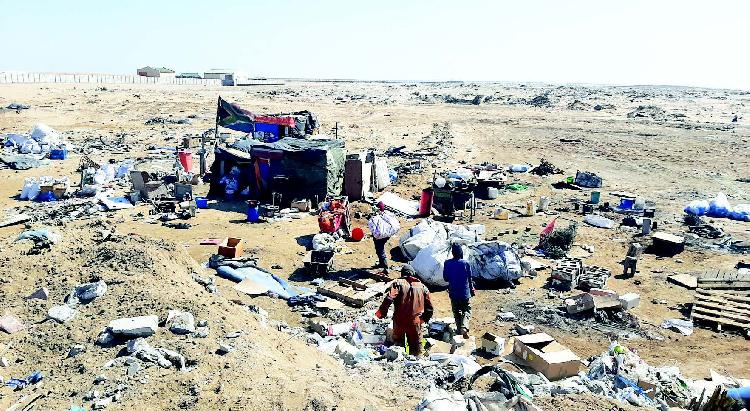Africa-Press – Namibia. TIRI MASAWI and CHARMAINE NGATJIHEUE
PRESIDENTIAL economic adviser James Mnyupe has cast doubt over Namibia’s financial capabilities to sustain a modified basic income grant (BIG) amid a challenging economic environment and limited fiscal space.
However, the government has given its stamp of approval for a modified BIG to beneficiaries of the food bank and of grants for marginalised communities.
Mnyupe yesterday on Desert Radio 95.3 FM said there should be a balance between growing the economy and civil liberties.
His sentiments come at the back of a 70% debt-to-gross domestic product (GDP) ratio, and stunted economic growth which started in 2020 when the country’s economy shrunk by 8% because of the Covid-19 pandemic.
The shrinkage is officially the worst contraction since Namibia’s independence 31 years ago, he said.
“The economy is at least showing signs of a rebound, and this year we expect it to grow by at least 3%, but it is important to note we are growing at 3% from the heavy effects of the Covid-19 pandemic, so it is a long shot.
“The current debt-to-GDP ratio is already above 70%, so we need to grow the economy if we want to be able to take care of our people. In a state where the economy is not growing it will not be sustainable to survive on subsidies,” he said.
Mnyupe, who also serves as the green hydrogen commissioner, said the country’s best bet to stimulate economic growth depends on everyone getting vaccinated.
In this regard Namibia is not doing well compared to other countries.
“Recently truck drivers were facing challenges with Botswana demanding a vaccination certificate before they entered that country. The truckers are also calling on the president to speak to his Botswana counterpart to allow them to drive through, but the issue is that if we then do not get them and everyone vaccinated they would have to find alternative routes to drive to South Africa, which would be longer.
“This would affect the price of goods and services, and inflation would be high,” he said.
INVESTMENT FOCUS
Mnyupe said the government is trying to attract investment through the green hydrogen project to stimulate economic growth, power generation, and industrial development.
He said the government is working on methods to stimulate small and medium enterprises (SMEs) through the provision of funding and incentives as part of a cheaper and less restrictive model.
He said the government will put measures in place to allow those who need the incentives to benefit, while rooting out possible flaws which could prejudice the targeted beneficiaries.
POVERTY ERADICATION
Meanwhile, presidential spokesperson Alfredo Hengari said while the levels of poverty in the country are worrying, they are not as alarming as portrayed by the World Bank, which said more than 1,6 million Namibians are living in poverty.
He said one million Namibians are beneficiaries of grants, while the old-age grant was increased in 2016.
The report should have contained that information, he said.
Hengari said the food bank has benefited 11 000 households across all regions of the country, reaching 60 000 individuals.
“It is important that when we look at some of these statistics we should also relate them to our local statistics.
“According to our own statistics, the number of people living in poverty is around 400 000.
“President Hage Geingob is very concerned about this, and has also been on record for saying the unavailability of housing is worrying.
“It is an issue that can be solved by everyone – not just the government, but also other stakeholders, like the Shack Dwellers Federation of Namibia and the financial sector,” he said.
For More News And Analysis About Namibia Follow Africa-Press






